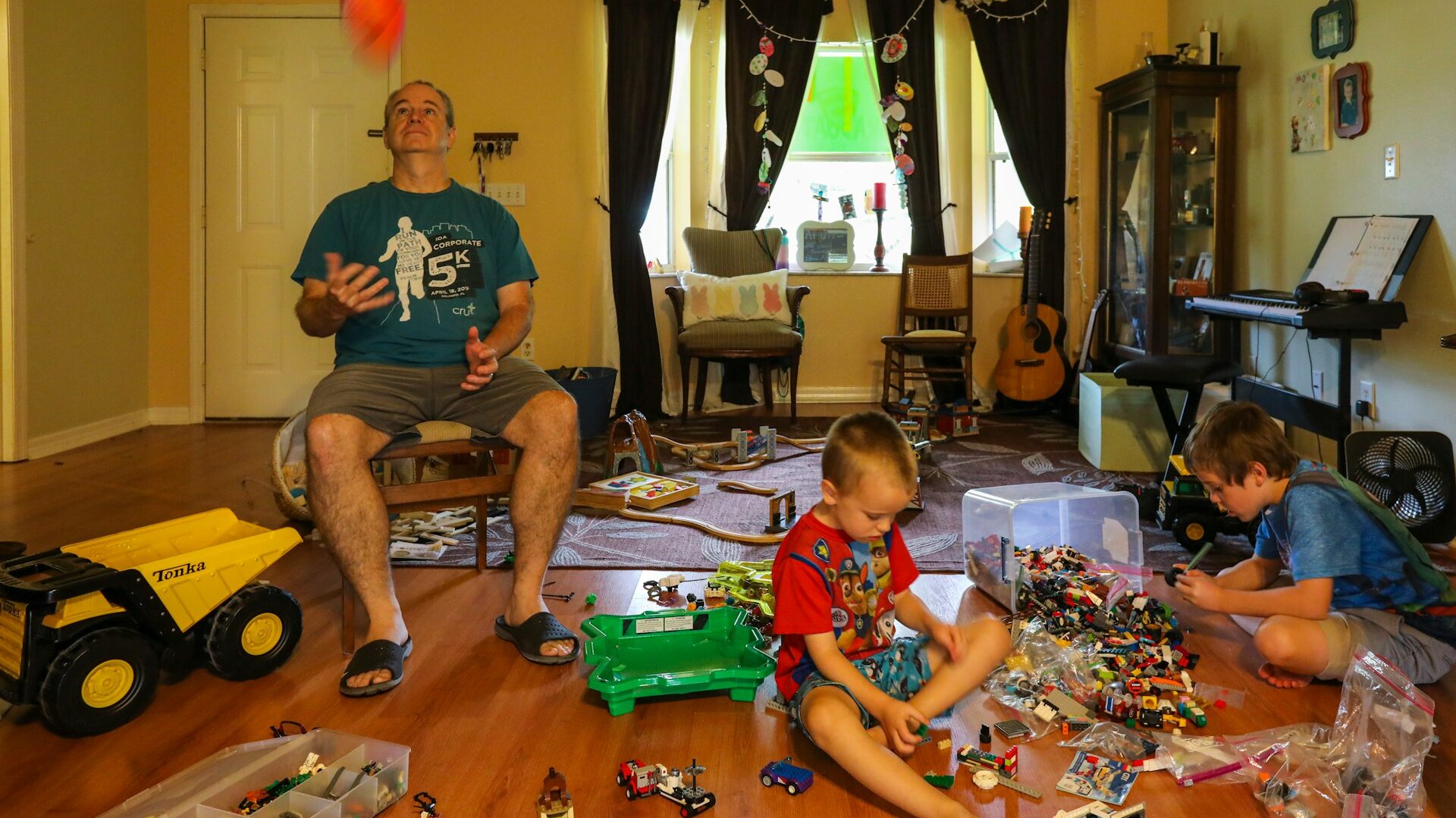Being a parent is a rewarding experience, but for introverted parents, it can come with unique challenges. The constant noise, social demands, and energy required to raise children can feel overwhelming, especially in a world that often seems geared toward extroverted activities. However, introverted parents possess strengths that can make them exceptional caregivers, allowing them to connect deeply with their children and create nurturing environments.
Understanding these strengths and challenges is key to navigating parenthood as an introvert. It’s not about trying to change who you are but rather embracing your introverted nature to find a balance that works for both you and your family. Let’s explore how introverted parents can raise their children in a loud world while staying true to themselves.
Understanding the Introverted Parent
Introverted parents often recharge by spending time alone or in quiet, low-stimulation environments. They prefer deep, meaningful conversations over small talk and may find large gatherings draining. These traits can sometimes make the social aspects of parenting feel particularly challenging, especially when they involve constant interaction with other parents, teachers, or community members.

However, being introverted is not a limitation. Introverted parents tend to be excellent listeners, empathetic, and thoughtful in their approach to raising children. These qualities foster deep connections and a nurturing home environment, helping them create strong, supportive relationships with their kids.
The Challenges of Parenting in a Loud World
Parenting often involves navigating noisy, crowded, and socially demanding situations. From birthday parties to school events, these activities can be particularly draining for introverted parents. The constant need to engage in social interactions can lead to feelings of exhaustion and overstimulation.
Moreover, societal expectations often pressure parents to be outgoing and constantly involved in their child’s social life. For introverted parents, this can lead to stress and burnout. Recognizing these challenges is the first step toward addressing them and finding a balance that allows for both active parenting and personal well-being.
Embracing Quiet Time: Finding Moments of Solitude
One of the biggest challenges for introverted parents is finding time for solitude. With the demands of parenting, carving out moments of quiet can feel nearly impossible. However, it’s crucial for introverted parents to prioritize these moments to recharge and maintain their energy levels.

Creating daily routines that include quiet activities, such as reading or taking a walk alone, can be beneficial. Additionally, setting boundaries with your children and establishing “quiet time” in the household can help everyone unwind and recharge. These strategies ensure that introverted parents have the space they need to care for themselves while still being present for their children.
Creating a Calm Home Environment
Introverted parents often thrive in calm, peaceful environments. While this might seem at odds with the chaos that comes with raising children, it is possible to create a home atmosphere that caters to both your needs and those of your children. Designating specific areas of your home as quiet zones can provide everyone with a space to retreat when things feel overwhelming.

Incorporating calming routines into your daily life can also help maintain a peaceful home environment. Whether it’s practicing mindfulness, enjoying a quiet meal together, or simply spending time in silence, these routines can benefit both you and your children, creating a more harmonious household.
Balancing Social Obligations with Introverted Needs
Social obligations are a natural part of parenting, but they can be taxing for introverted parents. Balancing these demands with your need for solitude requires careful planning and honest communication. Prioritizing social events that are most important to you and your children, while politely declining others, can help manage your energy levels.

It’s also important to schedule downtime before and after social events to help you recharge. Connecting with like-minded parents who understand and respect your introverted nature can provide a supportive community, making social interactions more comfortable and enjoyable.
Leveraging Your Introverted Strengths
Introverted parents bring a unique set of strengths to the table, which can have a profound impact on their parenting style and their relationship with their children. For instance, introverted parents often excel at creating deep, meaningful connections with their children. Their ability to listen and empathize helps them understand their children’s needs and feelings.

Additionally, introverted parents are often thoughtful and deliberate in their decision-making. This careful approach to parenting can lead to well-rounded, emotionally intelligent children who feel secure and understood. By embracing these strengths, introverted parents can create a nurturing environment that supports their children’s growth and development.
Teaching Children the Value of Solitude
One of the most valuable lessons introverted parents can pass on to their children is the importance of solitude. In a world that often prioritizes constant social interaction, teaching your children to appreciate quiet time and introspection is a gift that will serve them well throughout their lives.

Encouraging activities that your children can enjoy alone, such as reading or drawing, can help them learn to value their own company. By modeling this behavior yourself, you demonstrate that solitude is not something to be avoided but a vital part of maintaining emotional and mental well-being.
Respecting Your Child’s Individuality
As an introverted parent, it’s natural to want to create a peaceful and quiet environment that aligns with your preferences. However, it’s important to remember that your child may have a different temperament. Forcing them to adopt your introverted habits or preferences can lead to frustration and conflict. Instead, encourage your child to explore their own interests and develop their unique personality, whether they are introverted, extroverted, or somewhere in between.

Respecting your child’s individuality means allowing them the space to express themselves in ways that feel natural to them. This might involve participating in social activities that they enjoy, even if it’s not your preferred way of spending time. By supporting their needs and interests, you help them grow into confident and well-rounded individuals, while also teaching them the value of understanding and respecting different personality types.
wrap-up: Embracing Your Introverted Parenting Style

Being an introverted parent in a loud, extroverted world can be challenging, but it’s also an opportunity to embrace your unique strengths. By understanding your needs, setting boundaries, and leveraging your introverted qualities, you can navigate the demands of parenting with confidence and grace.
Remember, your introverted nature is not a limitation, it’s a strength that allows you to connect with your children in meaningful ways and create a home filled with calm and love. Embrace who you are, and know that your introverted parenting style is not just valid but valuable.
